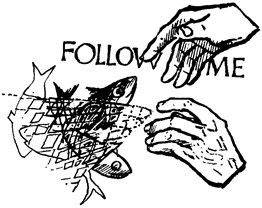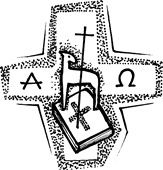Hebrews 9:24-end and Mark 1:14-20
In the name of God, creator, redeemer and sustainer. Amen
We are a few verses from the start of Mark’s gospel and today’s reading begins with locating the action in time. It is in the period after John had been the voice in the wilderness, Jesus has been baptised, spent forty days in the wilderness and then shortly after when John had been arrested. It was then and only then that Jesus began to proclaim the good news of God for himself.
Mark gives us something Jesus was saying as he did this. The time is fulfilled, and the kingdom of God has come near; repent, and believe in the good news. Let’s unpack those statements in turn and see what we can apply to our Christian lives from them.
Let’s start with the time is fulfilled. This is a fixed point in time, a decisive moment, we might use the language of a turning point. The verb used here has a sense of fulfilment or coming to pass. Instead of announcing an ending, Jesus is announcing the new beginning he is bringing that God is at work within us. What this says to us now, is there is always a new beginning with Jesus love for us, all achieved through this turning point and the life Jesus lived, the death he died, and the strength and power of his resurrection and subsequent ascension. This is also the point our passage from Hebrews is making – it was done once. New every morning is this love for us, new every morning.
The second phrase is and the kingdom of God has come near. Other translations of this have this as ‘The Kingdom of God has come into history’. These terms denote nearness rather than arrival. What this says to us now is that we live in the kingdom of God in our daily lives and that should influence how we approach each moment, and rule in our hearts and lives. We should be looking for signs and wonders in that kingdom and living the way God says is best for us. Our faith provides guidance in how to approach our lives. There shouldn’t be anything we do, it does not influence.
The third phrase is Repent, and believe the good news. The repent has echoes of the teachings of John the Baptist, but is definitely in the turn back, return to God with all of ourselves arena. There is much more at stake than changing our minds, regret or sorrow, but something more wholehearted about our need to change our ways. What this says to us is that repentance is not something to trifle with, but to be approached conscious of our deep need for God’s forgiveness and God’s love for us.
The final phrase and Believe the good news has echoes of the prophecies we will soon engage with as Christmas approaches once more. For example from Isaiah 52:7 How beautiful upon the mountains, are the feet of the messenger who announces peace, who brings good news, who announces salvation, who says to Zion, ‘Your God reigns.’ What this says to us is that this is about Jesus coming with the new rule of love into history. This side of his death and resurrection, the work is done, and fully accomplished for us. All we have to do is to choose to love Jesus in return and to love Jesus wholeheartedly.
For Mark, Jesus was both the one who proclaimed the good news, and the one through whom the good news was worked.
Having thought about all of that, and these heralding words of Jesus – and what that means for us and the faith in which we walk, and the kingdom in which we reside. It is interesting to see what Jesus does next. He goes to find some people to work with – ordinary people to be his followers, very ordinary just like us. He found the people we would encounter if we walked on the shores of the sea of Galilee in his day – the fishermen. He gathered the characters we know best from the gospels, Simon, Andrew, James and John.
Look at how he does this, he speaks to them, Andrew and Peter were fishing, and they immediately dropped their nets and followed. James and John were mending nets on the shore, and Jesus called them. They had the additional challenge of leaving their father and followed. In both cases there is an ‘immediately’ about it (we will remember Mark uses this word a lot!). There is no dither or delay, negotiation, or persuasion. This is something quite other. This is leaving behind without a moment’s hesitation. Leaving behind their former way of life and former ties even some strong family bonds. There are pointers to the way of discipleship at times being costly as we know it can be.
It is also not just to be followers. I will make you fish for people is what Jesus says to Simon and Andrew. This shows us that Jesus intended not only that these fishermen accompany him and witness what he does, but that they are to share his ministry, and eventually continue it. They are to learn on the job so to speak, and practice as they go. There are several places in the gospels where Jesus picks to do things in twos, and this two sets of two brothers, highlights how much we too need to do things together and support one another. Being a follower was never meant to be passive and sitting at the side lines not taking part.
 These four, who become Jesus’ inner circle, are very foundational in the kingdom Jesus brings. Four ordinary fishermen with open hearts. Probably not very qualified or the ideal candidates for what Jesus needed – but they were what he had. I take particular strength from Peter, who gets it wrong often and turns back! There is hope for all of us no matter how unlikely it may seem to us. God can use us to share the good news as only we can, and work within us and through us by the Holy Spirit. Look around we are who God has here to do this!
These four, who become Jesus’ inner circle, are very foundational in the kingdom Jesus brings. Four ordinary fishermen with open hearts. Probably not very qualified or the ideal candidates for what Jesus needed – but they were what he had. I take particular strength from Peter, who gets it wrong often and turns back! There is hope for all of us no matter how unlikely it may seem to us. God can use us to share the good news as only we can, and work within us and through us by the Holy Spirit. Look around we are who God has here to do this!
We will do this best if Jesus’ story is to the fore in our hearts and lives. That we recognise we are living in God’s kingdom now and working for his kingdom of love, peace and hope. Looking for where God is at work and where God is at work in us and through us, and joining in.
Just as Jesus is saying to us The time, is fulfilled, and the kingdom of God has come near, repent and believe in the good news. He is also saying ‘Follow me and I will make you fish for people.’
Let us pray: Jesus, we follow you, we praise and adore you today, and for all time. We were called into your kingdom once, for all time. You died to save us once, for all time. You brought us to God once, for all time, through your resurrection once, for all time. We are baptized in your name once, for all time. Jesus, we follow you, we praise and adore you today, and for all time. Amen.
References;
Prayer from © ROOTS for Churches Ltd (www.rootsontheweb.com) 2002-2021. Reproduced with permission.
The New Revised Standard Version (Anglicized Edition), copyright 1989, 1995





